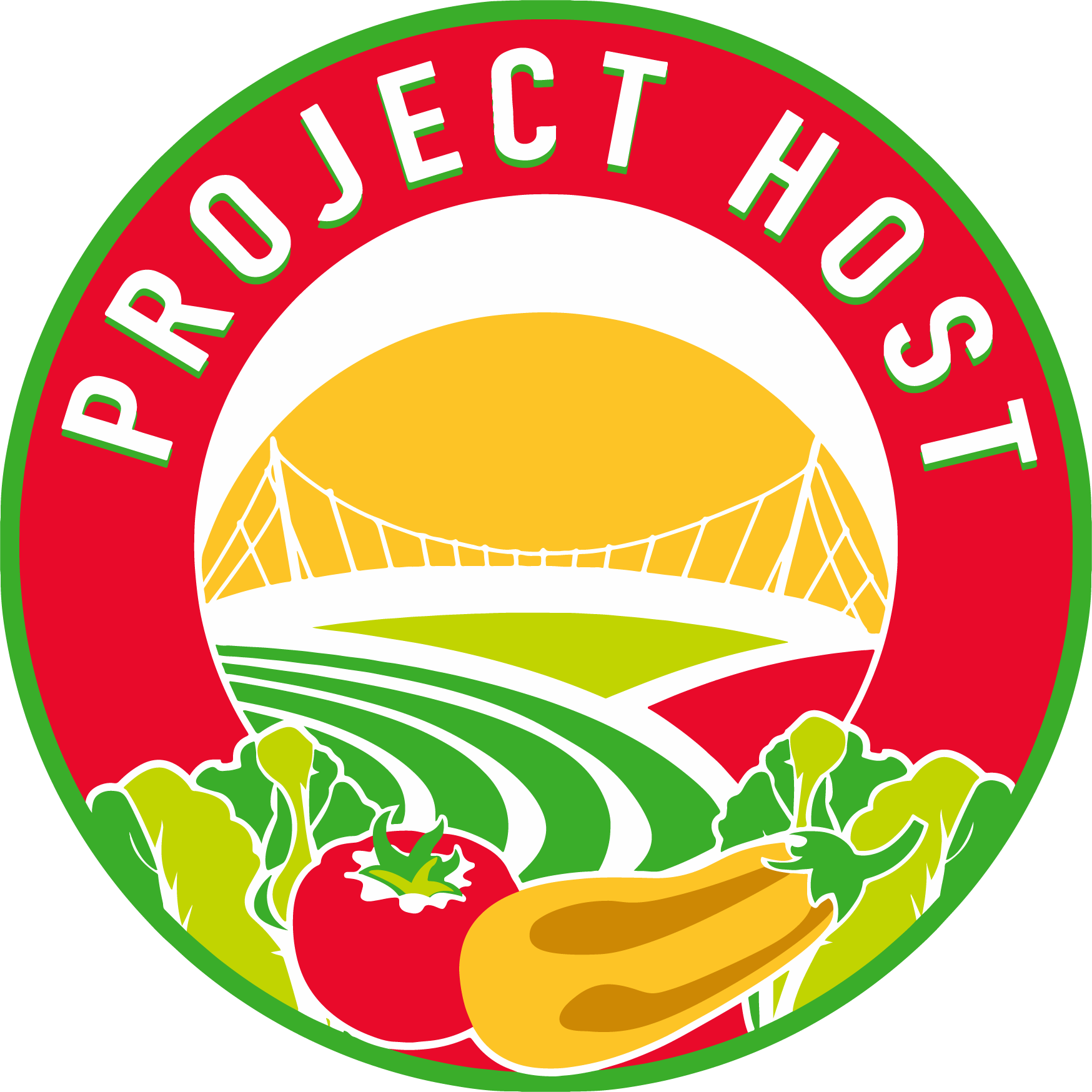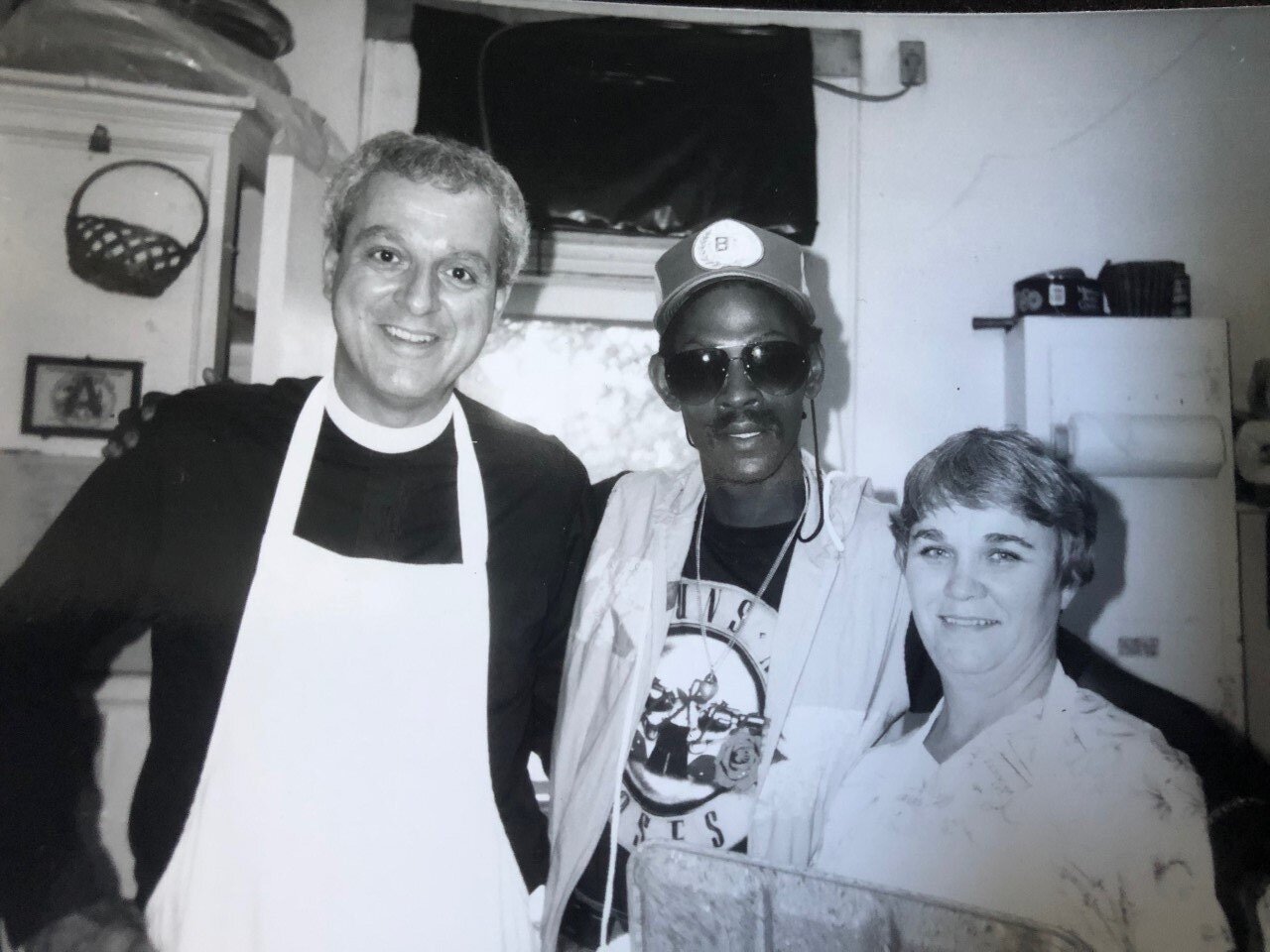Project Host Journey to Academy Street
Image from a 1989 article in the Greenville Piedmont.
When Project Host got started in 1981, it was indeed a “project” in every sense of the word: a joint effort addressing a problem, experimental, perhaps temporary. It was addressing an immediate need—feeding hungry people in Greenville—and no one quite knew just how persistent or pervasive the issue of hunger in the area was when they began the soup kitchen.
Often, though, when an endeavor continues and even grows, it’s because of more than just the fact that there is a need in the community. It takes a special person or group of people to keep the momentum going and move an organization forward. For Project Host, that person was longtime director Jody Fails, who began her oversight of the Soup Kitchen in 1986.
Jody was reluctant to take to the position. She’d seen the job ad a few times in her church newsletter and set it aside, but it kept resurfacing and pulled at her heart. She’d never even set foot inside the soup kitchen at St. Andrew’s, and she had just stepped away from the position of director of education at another area church. What qualifications did she have to run a soup kitchen?
Jody (far right) pictured with soup kitchen volunteers at St. Andrew’s.
But each time she saw the ad, there was a nagging feeling. Just before she left for vacation in summer 1986, she saw it again and said, “God, if this opening is still here, I will apply, but I have absolutely no gifts and no talents and no idea what to do.”
The hiring committee must have seen things differently, because by October Jody had taken over as the new director. She thrived in the role, and Project Host thrived along with her. “The organization grew tremendously: the number of people we served, the volunteers, the donations. All of it came alive then.”
Project Host didn’t just experience growth in meals served, though. Under Jody, there was development and change in how guests were served.
“The thing that bothered me when I first took over was that none of the volunteers knew the names of the guests that were coming in, and I said, ‘Why don’t you introduce yourselves?’ And that was it. We got to know all the regulars who came in. I would ask volunteers to dress casually and remind them: You are not the privileged in society here. You are privileged to get to serve them, our guests.”
For Jody, those personal connections opened her eyes to how many people in Greenville were underserved and led to opportunities to help people beyond just providing a meal. She recalls one story in particular:
Jody (right) with one of St. Andrew’s priests and soup kitchen guest Cleo. During the interview, Jody saw the picture of Cleo and told a story of when she argued with Cleo about driving him and his bike to his home in Nicholtown one day. Cleo insisted it wasn’t safe, but Jody would hear none of it, and ultimately her stubborness won out and she drove Cleo home.
“We had a case one day when I was putting out trash after service and there was a car just sitting there. I walked over to them and asked if they’d had lunch. They said no. The family had come down from Illinois because the father was out of work and was hoping to find a job at the new BMW plant. We served them lunch just like they were our special guests, and then I helped connect them with United Ministries, who helped get them off the street. A few weeks later the father was employed again and came by the soup kitchen to tell me and to thank Project Host.”
With all of the growth and development at Project Host, it was clear something had to be done about the facilities to continue meeting the community’s needs. From a practical standpoint, quarters were cramped and the St. Andrew’s parish hall had no air conditioning, leaving both guests and volunteers sweltering in the summer months.
Furthermore, there was a desire to provide a nicer atmosphere for guests. Then board vice-chair Yvonne Mason was quoted in a 1991 article in the Greenville News saying, “We try to make it not an institutional setting. We want to make it a nice place. We want to make it like someone cares beyond the soup and sandwich. We do.”
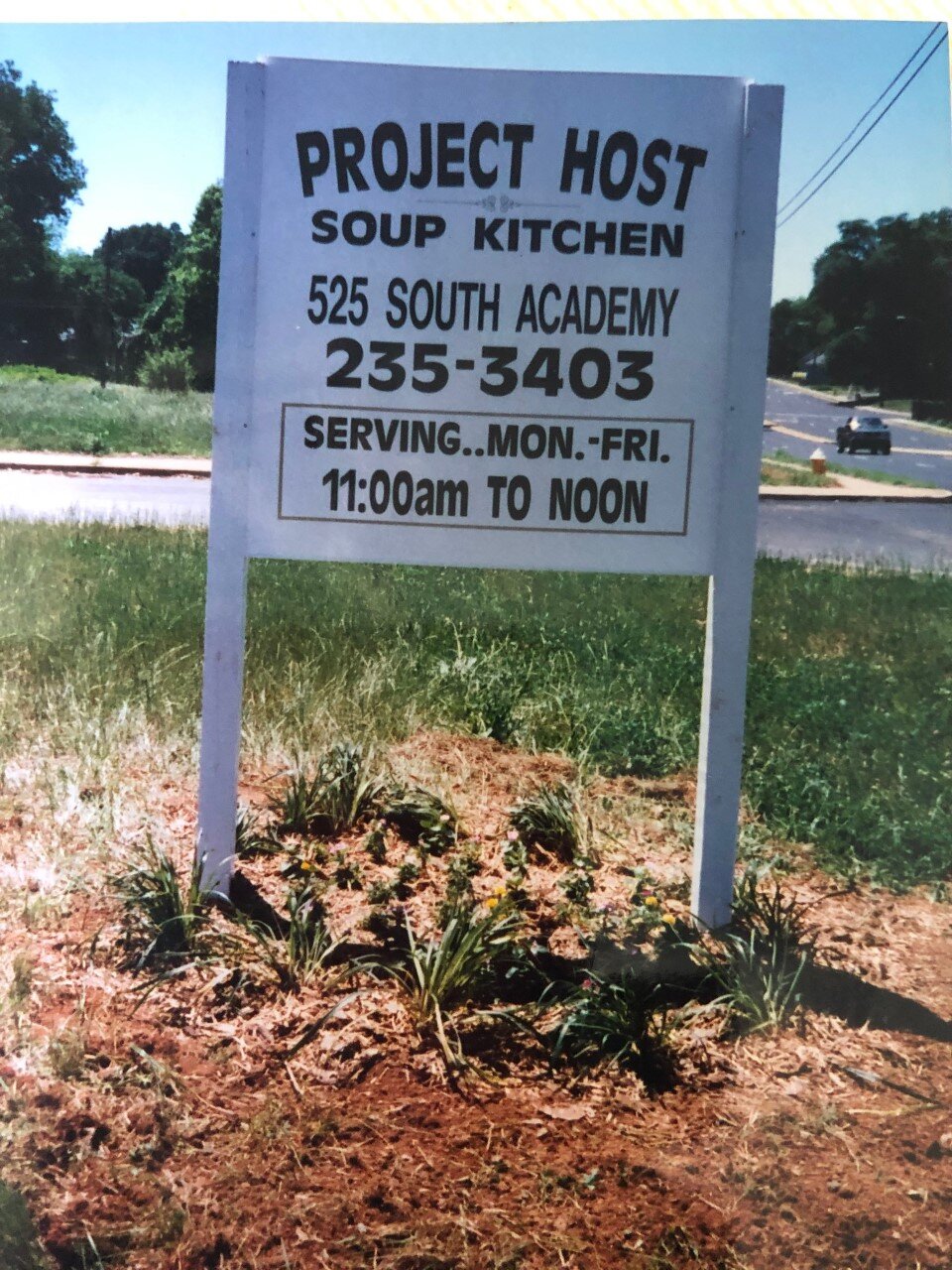
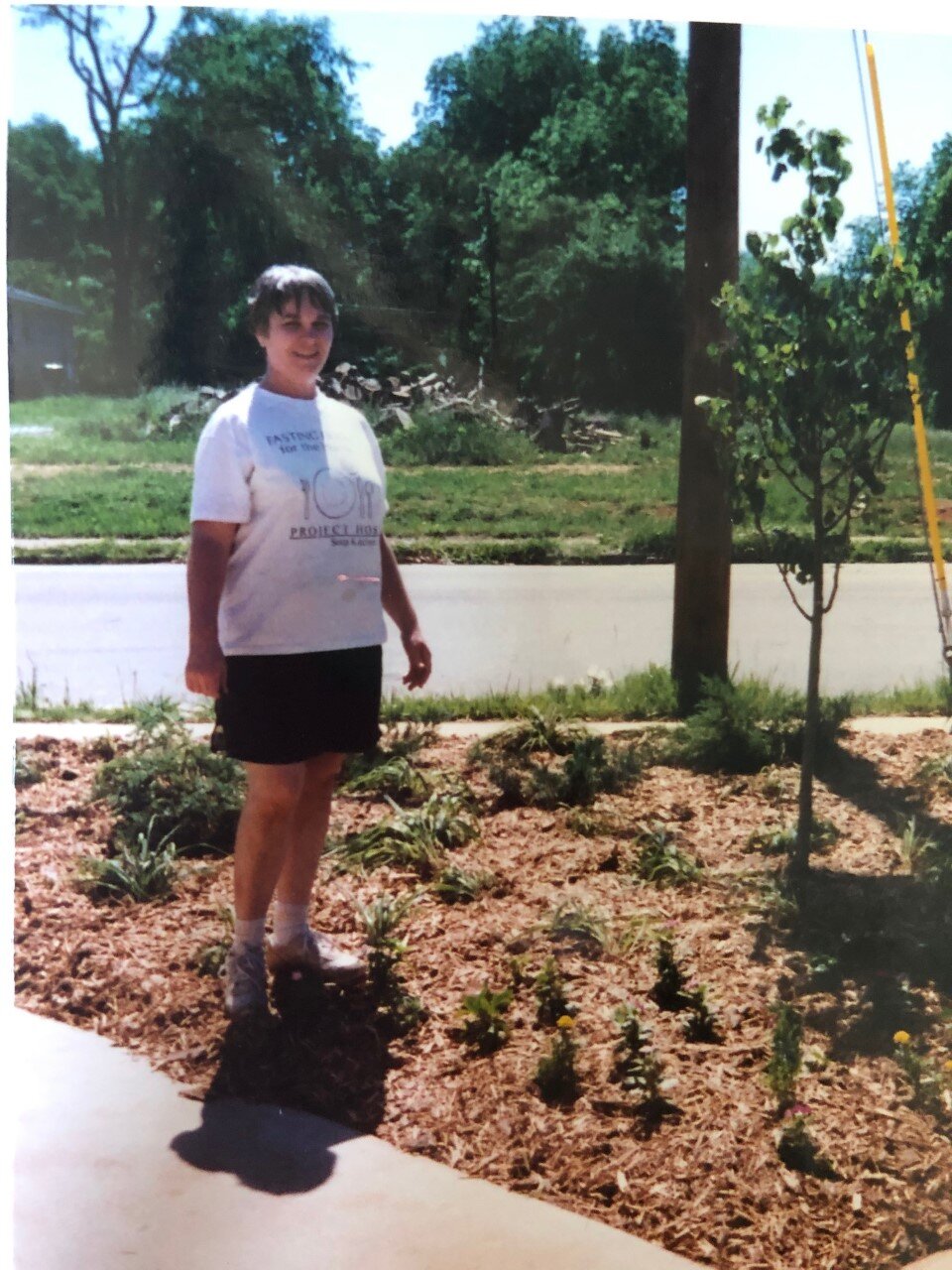
Plans were made and funds raised to expand and update the parish hall at St. Andrew’s, but then the bad news dropped: The whole building would have to be brought up to code, making the updates a much costlier and more involved process than anyone was anticipating.
Suddenly, Jody and her board of directors were looking for alternative locations for the soup kitchen, and a plot of land just a few blocks away from St. Andrew’s along South Academy Street presented itself as an option. The plot was purchased, and within a few years, a new kitchen and dining hall were standing and serving the community.
That same building still serves as Project Host’s soup kitchen today, over 25 years later. The former storage room has since been turned into the Bakery, but the kitchen and dining hall have remained almost untouched, and the environment Jody fostered so many years ago (COVID notwithstanding) remains intact. Volunteers and staff know the names of soup kitchen regulars, many of whom pitch in by cleaning up our parking lot or sweeping the sidewalk.
Of course, much has also changed since Jody moved on in 1996, both for her and for the organization. Jody turned to social work, getting her Master’s degree and then working for DSS and later GAIHN (United Ministries). “I would attribute that directly to Project Host. It helped me understand there are too many disenfranchised people in this world.”
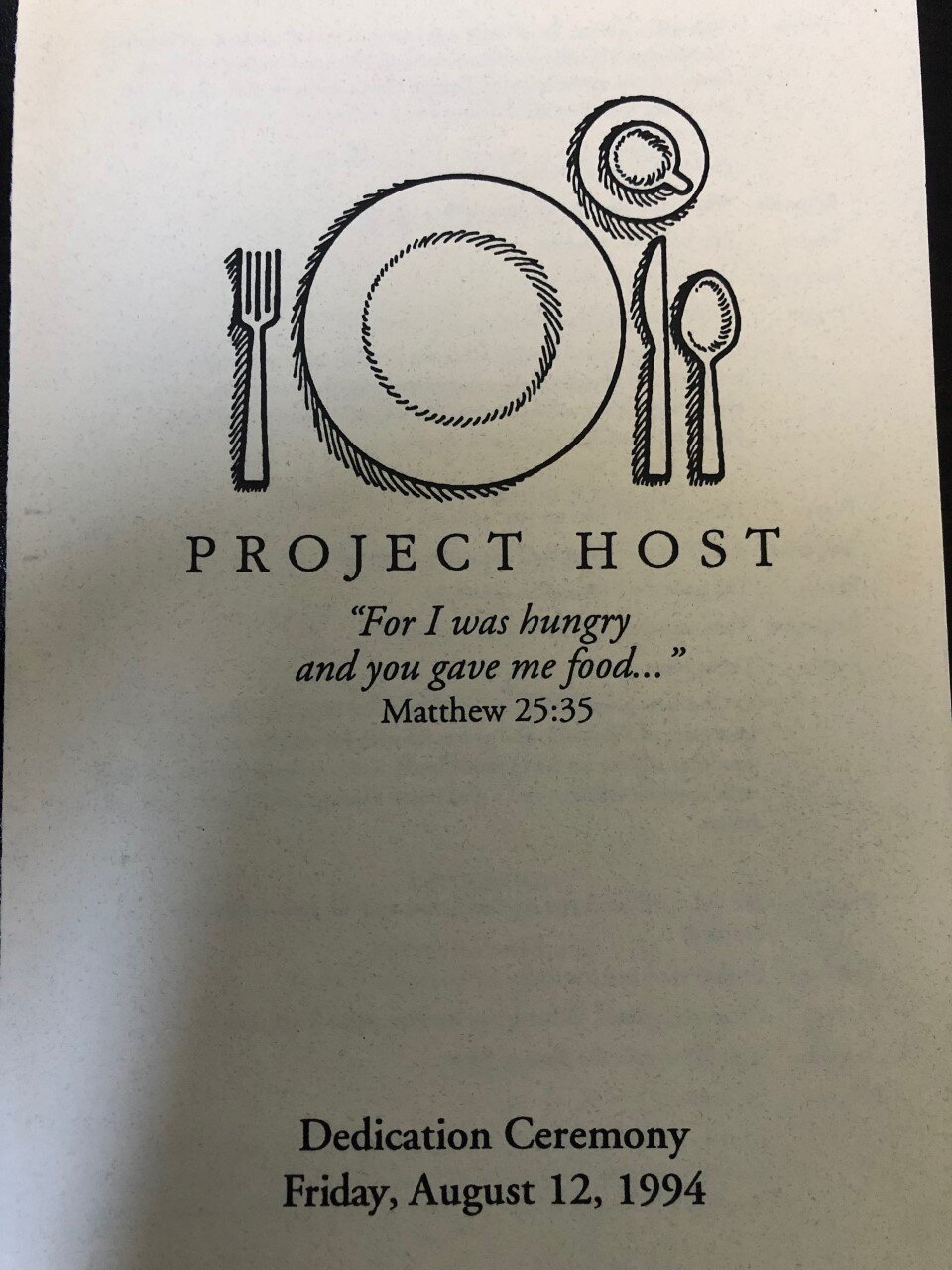
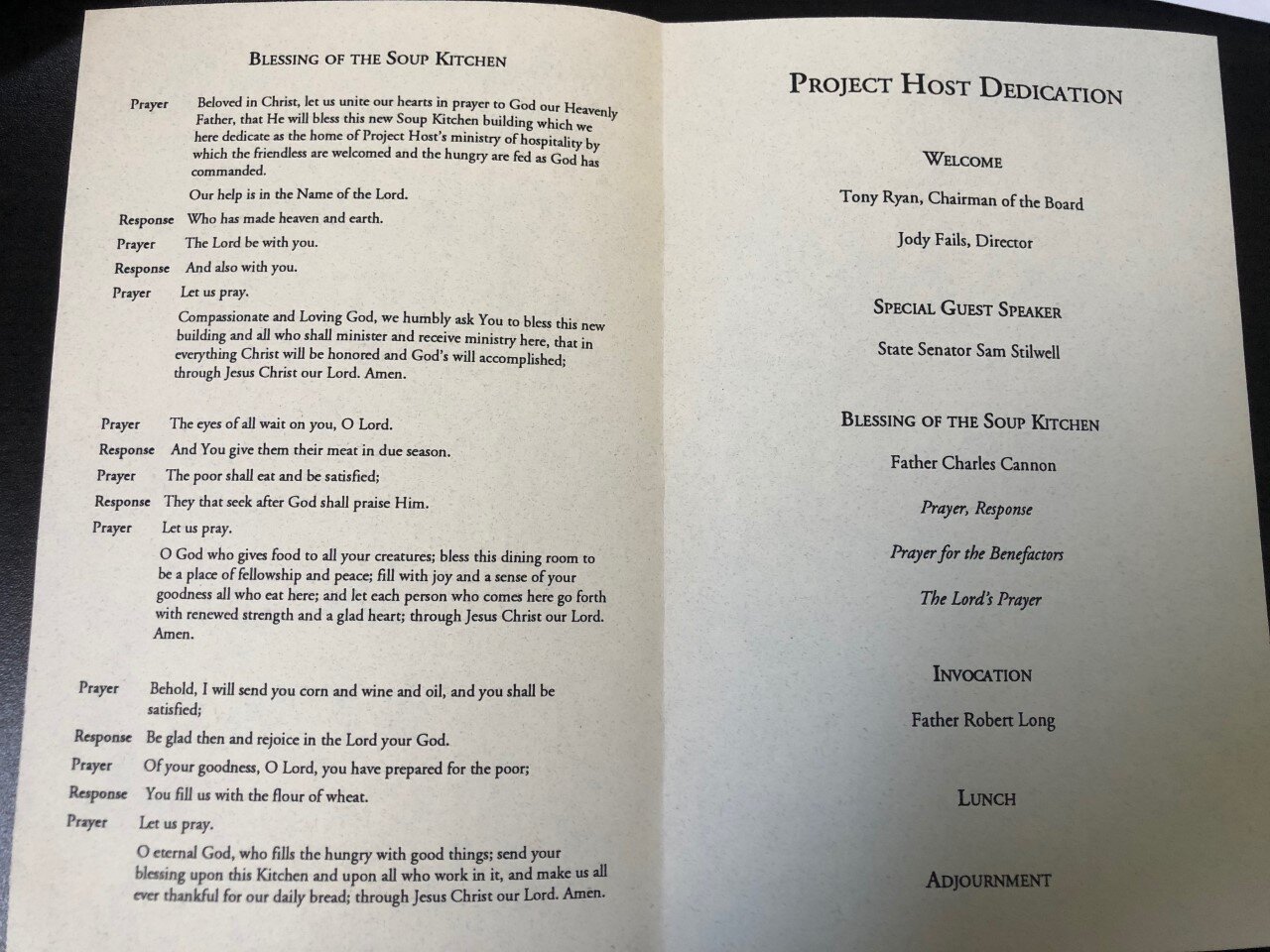
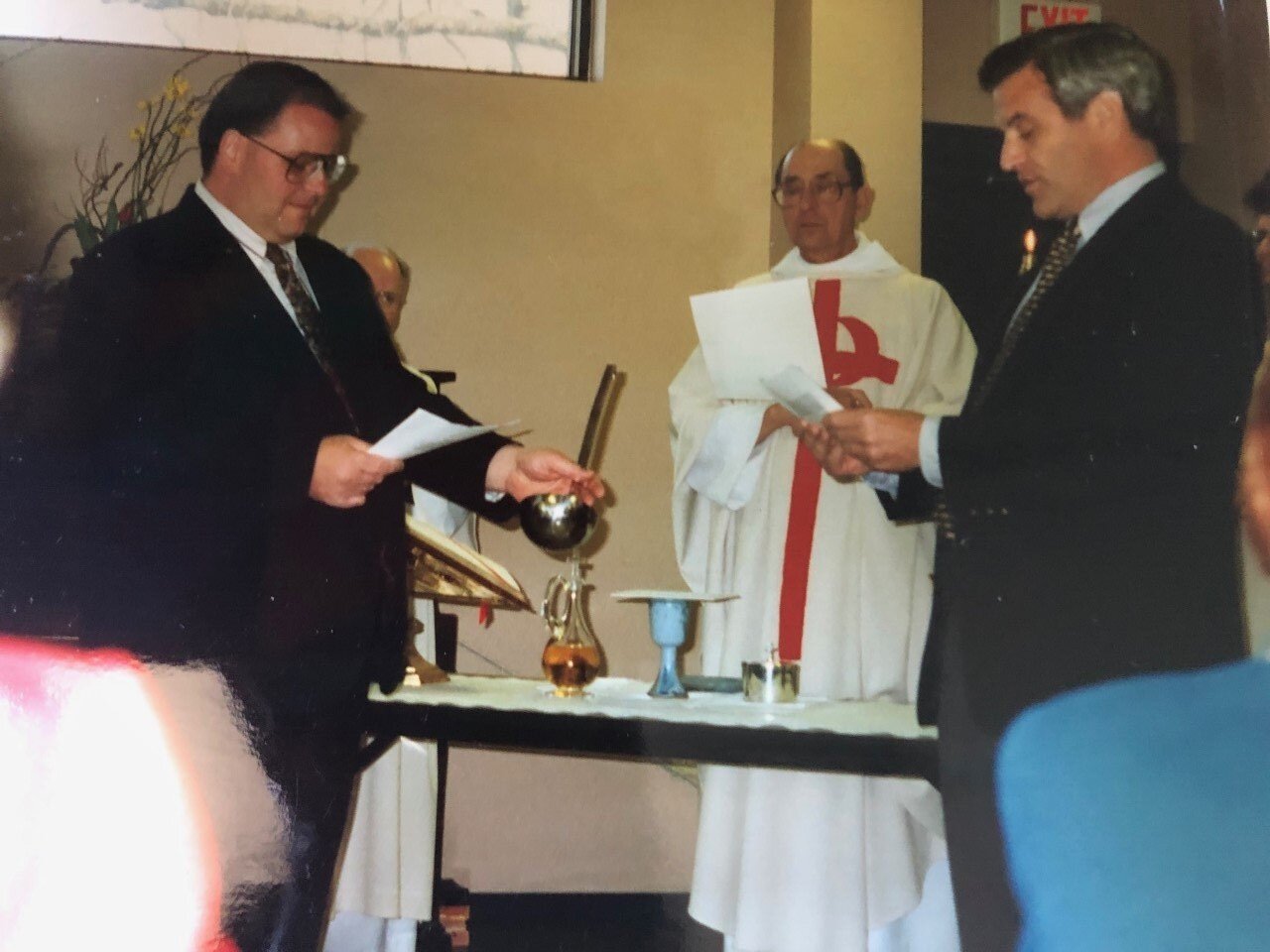
As for Project Host, it grew even more after Jody’s departure, adding the CC Pearce Culinary School, Cooking for Kids, Gardening for Good Program, and HostMobile food truck and Bakery social enterprises. Now some of the guests and volunteers who find themselves in the soup kitchen having fallen upon hard times can consider coming through the culinary school for job training and a leg up.
When Jody came in for this interview, she toured the building, seeing a number of new additions and running into both Sally Green, her immediate successor, and Tobin Simpson, Project Host’s current CEO. She beamed with pride as she spoke to both.
“It is amazing,” she said of Project Host and how far it’s come. “It’s exactly where it needs to be. Having a community-run program was my dream, and you’ve taken it there.”
While Jody gives all the credit of Project Host’s growth to her successors, its clear the organization would have never gotten where it is today without the solid foundation and heart that Jody infused it with during her 10 years as director. God may have had a plan for Jody when He kept putting that job ad in front of her all these years ago, but it seems perhaps He had a plan for Project Host too when He helped put Jody in charge.
By Claudia Winkler
